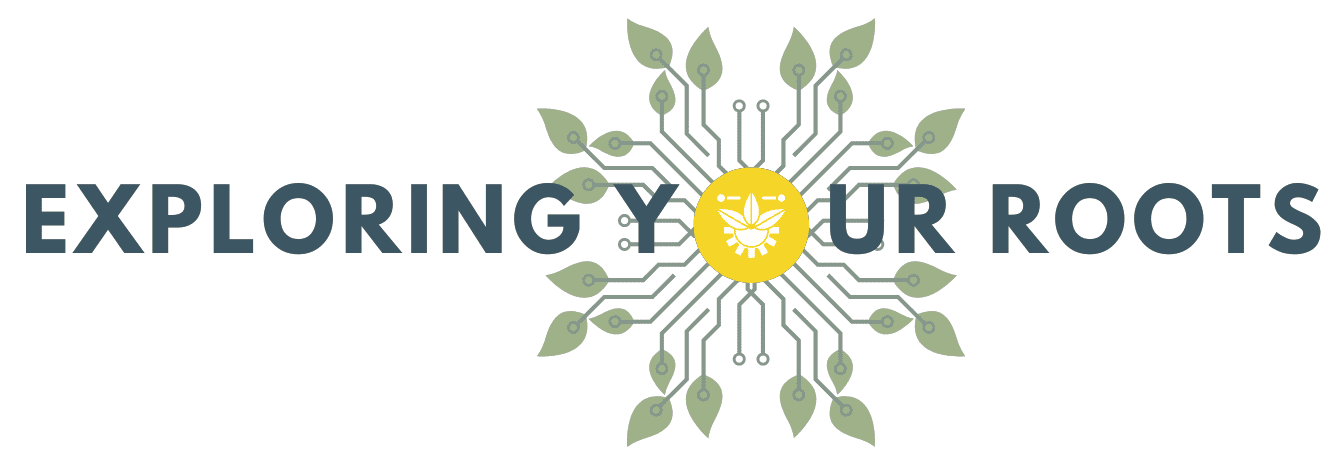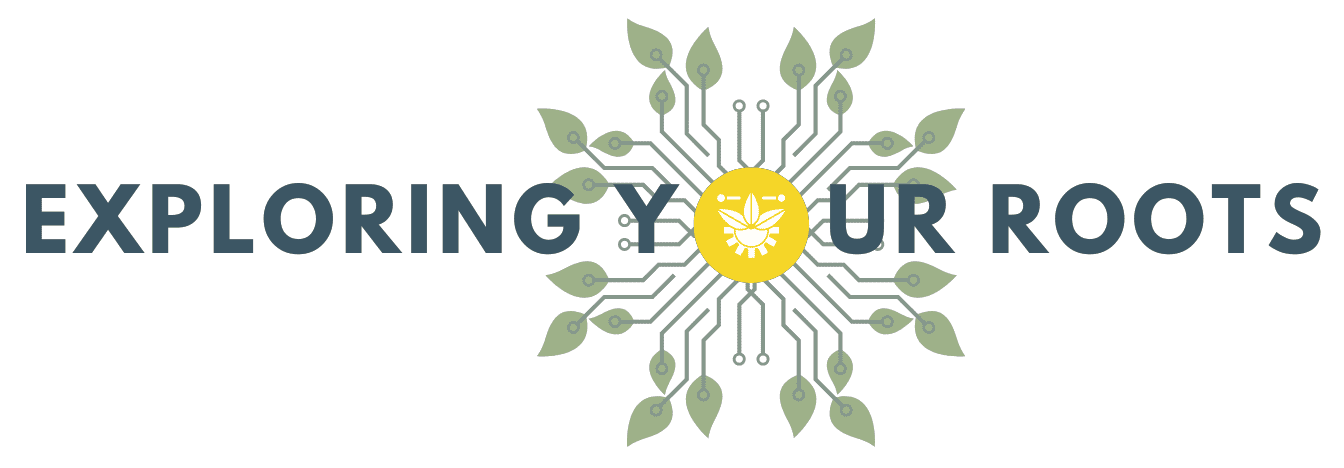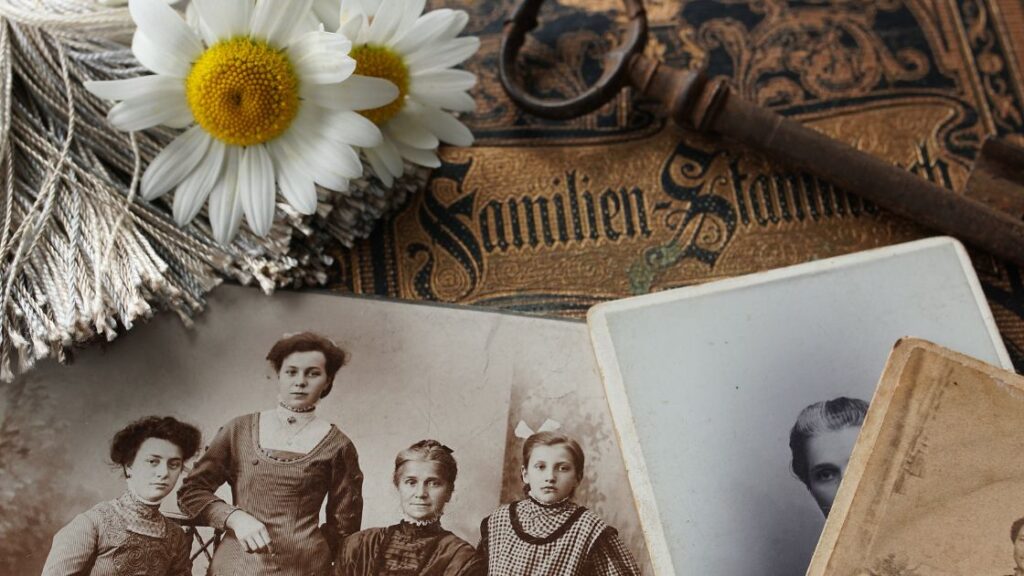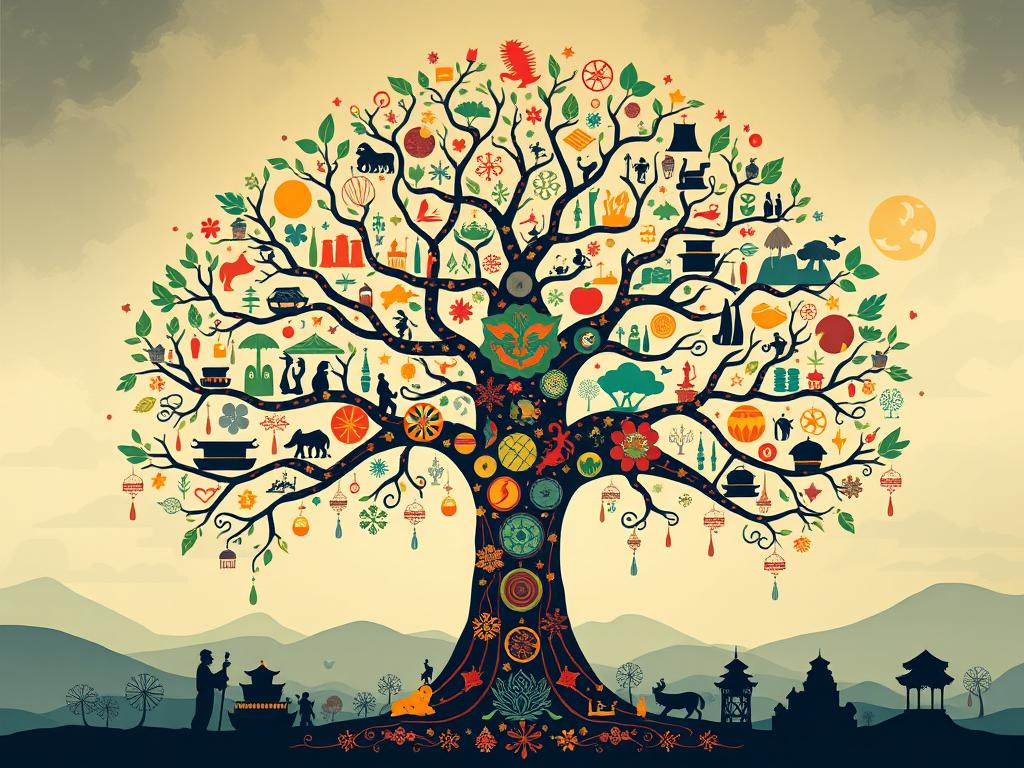Using genealogy for self-discovery is an often overlooked way to boost self-awareness and self-confidence. Imagine tracing your family tree and finding a hidden ancestor who fought for justice. Or learning that your great-grandparents moved to a new country for a better life. These discoveries can deeply change how you see yourself and your roots. Studies show that people who explore their family history feel more connected and happy, no matter what their life circumstances may be.
Starting a genealogy journey can open up a world of insights. It helps you understand yourself better, including your personality and cultural background. By learning about your family’s story, you can find your purpose, be inspired by your ancestors, and appreciate your diverse family history. Additionally, it can strengthen relationships and create a legacy of cohesive connectivity that will benefit future generations.
Key Takeaways
- Genealogy research can lead to profound self-discovery, providing insights into your identity, personality, and sense of belonging.
- Uncovering your family’s unique history and stories can unlock hidden connections, strengthen cultural ties, and inspire personal growth.
- Tracing your ancestral roots can help you gain a deeper understanding of your heritage and appreciate the diversity of your lineage.
- Engaging in genealogy can be a transformative journey, fostering a stronger sense of purpose and understanding of your family’s legacy.
- Leveraging online resources and DNA testing can facilitate the exploration of your family’s past and uncover unexpected discoveries.
The Importance of Understanding Your Roots
Why is it important to know more about your family’s history? Research shows that understanding more about your ancestry can facilitate increased self-awareness, help improve family relationships, and provide a stronger sense of belonging and inspiration. Digging into your family’s past and exploring your cultural heritage can boost self-esteem and confidence by providing insights into your ancestors’ achievements, resilience in the face of hardship, and perserverance in pursuit of a better life. Learning more about the traditions and beliefs the members of your lineage have adopted and practiced, whether you agree with them or not, can create a sense of appreciation and even healing of old emotional wounds you may be carrying. Understanding the “bigger picture” of what led to who you are today can be an invaluable tool in achieving your own goals and aspirations.
Getting Started with Genealogy Research
Venturing into the details of your family’s history can be exciting and fulfilling. It doesn’t matter if you’re just starting out or going deeper into the family stories. The first step is to gather as much info as you can about your immediate family. This means collecting names, birth dates, marriage dates, and other important details from older relatives and documents.
Census records are a great place to start. Early census records from 1790 to 1840 might only list the head of the household. But they still offer clues about where your ancestors lived. You can also use genealogical databases like FamilySearch or Ancestry to find more records.
- Use free online tools, such as those from FamilySearch, Ancestry, and MyHeritage, to start building your family tree.
- Look for birth, death, and marriage certificates to find important details about your ancestors’ lives.
- Explore family heirlooms like old photos, yearbooks, and scrapbooks for valuable information.
- Talk to older family members to capture their unique stories and memories through oral histories.
Genealogy research is part detective work and part puzzle solving. By assembling the various parts of your family’s history, a picture or narrative of all the lives that have led to your existance begins to form.
Leveraging Family Records and Archives
Family records and archives are gold mines for genealogy research. They hold birth, marriage, and death certificates. These documents give you names, dates, and even jobs and homes of your ancestors. They’re key to building your family tree and finding hidden connections.
Exploring Birth, Marriage, and Death Certificates
Birth, marriage, and death certificates are vital for tracing your family history. They show where your ancestors were born, who their parents were, and when big events happened. By using public records and family documents, you can learn a lot about your family’s past.
Unlocking the Secrets of Family Heirlooms
Looking into family heirlooms like photos, letters, and diaries gives you a closer look at your ancestors’ lives. These treasures reveal their stories, relationships, and cultural traditions. Finding these heirlooms is rewarding, as it connects you deeply with your family’s history.
Using family records and archives can uncover your family’s hidden stories and connections. This research is powerful for self-discovery. It helps you understand your identity and where you belong.
Maybe at the next family gathering or reunion, you can request everyone bring a family heirloom. Take photos, ask about origins, tell stories about the materials! By compiling these bits and pieces of family history, you collect more and more pieces of information to add to your personal narrative.
“Family reunions provide access to records, including documents, diaries, letters, and photos that can aid in genealogy research.”
Utilizing Online Resources and DNA Testing
In today’s world, online tools have changed how we do genealogy research. Sites like Ancestry.com, FamilySearch, and MyHeritage offer huge databases of records and family trees. They help you find your family’s history and connect with distant relatives. These online genealogy tools are key for genealogical database exploration and tracing family lineages.
DNA ancestry testing is also a big help. Companies like AncestryDNA and 23andMe let you test your DNA. This can reveal genetic ties to relatives and show your ethnic origins. Using DNA tests can broaden your family history search and reveal new things about your ancestors.
Navigating Genealogy Websites and Databases
Using these online genealogy tools takes some practice. Top genealogy sites have easy-to-use interfaces. They help you build your family tree, search records, and meet other researchers. Here are some tips to start:
- Use the search and filter options to find the right records for your genealogical database exploration.
- Try the DNA matching and ethnicity tools from DNA testing companies to find new family ties and insights into your tracing family lineages.
- Join online communities and forums to meet others with similar interests and share information.
By exploring these digital tools and using their information, you can grow your family history research. You’ll discover exciting facts about your ancestors.
Connecting with Distant Relatives
In the process of your research, you might find distant relatives you never knew about. Connecting with them can be very rewarding. It lets you share family stories, exchange information, and strengthen family ties.
Sharing Stories and Strengthening Bonds
Adding the voices of distant relatives to your research can fill in blanks in your research. You might learn new details about a branch of your family tree and even form close relationships. Sharing family stories and working on genealogy projects not only allows you to feel more connected to your ancestry, it also lets you share your discoveries with others that may benefit from greater awareness and understanding.
What tools are available for finding and connecting with distant relatives? Here are just a few:
- Nearly every online genealogical database site like Ancestry.com, MyHeritage, and Findmypast.com provides options to build or add to family trees.
- Genetic genealogy test companies such as AncestryDNA, Family Tree DNA, MyHeritage, and 23andMe offer autosomal DNA testing to help find close and distant cousins.
- Surname-specific DNA groups are hosted by Family Tree DNA to trace surname heritage and test descendants of specific family lines.
- Surname societies and Guild of One-Name Studies have directories of studies that showcase how families are related and help find cousins worldwide.
- Social media platforms like Facebook and Google+ host genealogy groups and communities focused on surnames, ancestral locations, and research topics to aid in finding cousins.
- Genealogy-focused social network GenealogyWise provides a platform for creating personal pages, joining groups, blogging, and more to connect with potential cousins.
- Genealogy message boards, such as RootsWeb, have a wealth of stored queries and replies that facilitate interactions with potential relatives and help in genealogical research.
By embracing these connections and sharing your family’s stories, you can not only strengthen the bonds within your family but also deepen your understanding of your own identity and the rich tapestry of your ancestral heritage.
Applying Genealogical Insights to Self-Discovery
In addition to forging new relationships and strengthening existing family connections, the insights acquired from genealogy research can offer a window into patterns and experiences that may have directly or indirectly impacted you personally. Knowledge of the unique struggles and triumphs of relatives, even distant relatives, can shed light on physical and mental health, habits, interests, and abilties. The common themes and traits you uncover during your exploration can assist you in making decisions and charting the path you take in life.
Your foray into family history will often benefit those around you as well! While you will certainly increase your knowledge of history, improve critical thinking, and hone research skills, ancestry exploration is also a way to strengthen “soft” life skills like empathy and resilience. Studies show that sharing family stories can help kids feel strong and confident, and provide the connectivity and support needed for healthy identity development. Getting the whole family involved will contribute to the well-being of individuals and the family unit itself.
“Genealogy is not just about names and dates, but about uncovering the stories that connect us to our past and illuminate our present.”
Appreciating Cultural Diversity and Traditions
Another exciting aspect of exploring your lineage is the discovery of the rich cultural beliefs and traditions within your family. You’ll learn about the ethnic, religious, or regional influences that shaped your ancestors and ways you can incorporate those elements into your modern life.
Here are some easy ways to embrace your unique heritage:
- Celebrate the unique aspects of your cultural heritage, like traditional food, music, or festivals. This deepens your appreciation for your family’s story.
- Join diverse communities and organizations that celebrate your ethnic background. This helps you understand and appreciate your heritage more.
- Share your family’s cultural traditions with future generations. This ensures your ancestors’ legacy lives on and is celebrated.
Overcoming Challenges and Healing Wounds
Everyone’s family history will inevitably reveal tough times and traumas. Journeying through the sorrow and loss that is part of the human experience can be hard but also healing. Ultimately, however, you will learn that a life well lived is about facing tough challenges with kindness, determination, and a strong will to carry on.
By understanding your ancestors’ struggles, you learn about their resilience and tap into your own. This knowledge increases compassion for your family and yourself. The study of what has occurred and how others faced hardships can enrich and develop your own ability to overcome. By bravely confronting family trauma with sensitivity and awareness, you are helping to break the cycle of generational trauma.
“Embracing vulnerability is key to the healing process. By opening ourselves up to the complexities of our family’s past, we can begin to unravel the patterns of trauma and work towards personal growth.” – Martine Shelley, researcher on generational trauma
Passing Down the Legacy
Researching and documenting your family’s genealogy is a deep and meaningful journey. It helps preserve your family’s lessons and legacy for future generations. By sharing details, artifacts, and stories with younger relatives you are creating a strong foundation that lets them build their own lives with courage and awareness they might not have otherwise. By compiling information about things like cultural background, traditions, migration, living circumstances, occupations, health conditions, and genetic predispositions, you are providing future generations with the tools they need to succeed.
“Preserving our family’s history is a sacred responsibility, a gift we can pass down to future generations. By sharing the stories of our ancestors, we keep their legacies alive and inspire our loved ones to cherish their own roots.”
Conclusion
Exploring your family’s genealogy is a journey that can change your life. It helps you understand your roots, identity, and place in the world. By finding the sometimes hidden stories in your family tree, you learn about your personality, values, and life experiences.
This journey of self-discovery can make you feel more connected to your culture. It helps you grow as a person and feel proud of your heritage. As you learn more about your family’s past, you’ll find insights that can shape your life and the lives of those who come after you.
Start your journey of genealogy to discover who you are and where you come from. The insights and lessons you find will enrich your life. Remember, the benefits of exploring your family history and continuing your research are key to this journey.
FAQ
What is the importance of understanding your roots through genealogy research?
Exploring your family’s history can make you feel more connected to your roots. It helps you understand your cultural background better. This way, you can appreciate the rich stories and traditions of your ancestors.
How can one get started with genealogy research?
Start by gathering information about your family. Talk to older relatives and look through family documents. This will help you build a detailed family tree.
What types of family records and archives can be helpful in genealogy research?
Birth, marriage, and death certificates are key. They give you important details about your ancestors. Family heirlooms like photos and letters also offer a personal look into their lives.
How can online resources and DNA testing help with genealogy research?
Websites like Ancestry.com and MyHeritage have lots of historical records. DNA testing kits can reveal genetic connections to distant relatives. They also show your ethnic origins.
What are the benefits of connecting with distant relatives through genealogy research?
Connecting with relatives can share family stories and strengthen family bonds. It creates a sense of community and belonging.
How can genealogy research contribute to personal growth and self-discovery?
Exploring your family’s history can reveal patterns and traits passed down through generations. It helps you understand your personality and values. This leads to a deeper understanding of yourself.
How can genealogy research help you appreciate cultural diversity and traditions?
Discovering your ancestors’ stories can inspire you to embrace your cultural heritage. It connects you to your roots and the diverse stories of your family.
How can genealogy research help you confront and heal from challenges or traumas in your family’s past?
By facing your ancestors’ challenges, you gain insight into their struggles. This can foster compassion and help heal any family wounds.
How can you ensure that your family’s legacy is preserved and passed down to future generations?
Document and protect your ancestors’ stories and traditions. This inspires younger family members to explore their roots. It strengthens their identity and appreciation for their heritage.
More Articles You Might Like:
Understanding Generational Patterns and Cultural Heritage
25 Powerful Self-Awareness Activities Using Genealogy
Source Links
- Embrace Yourself, Embrace Love: Navigating the Path to Self-Discovery and Meaningful Connections — Met By Nick
- Belonging Begins With Self. Here’s How to Find the Connection
- Relying on the Real Picture of Relationships: A Journey of Self-Discovery – Make Dream Family
- Genealogy: The Importance of Knowing Your Roots
- The Significance of Cultural Spaces in the Indian Diaspora Heritage
- Wish to Discover Your Family’s Roots? Getting Started in Genealogy Research
- New to Genealogy – Beginners First Step
- Family Reunions and Genealogy: How To Leverage Family Gatherings
- Researching Family History Online
- Leveraging Genealogy as an Academic Discipline
- DNA and Genetic Genealogy
- Understanding and Using DNA Test Results – National Genealogical Society
- How To Take A DNA Test Online?
- How to Find Your Connection to a Distant Relative
- 10 Ways to Connect With Distant Cousins
- Discover Your Roots with Genealogy Products and Services
- AI Revolutionizes Genealogy: Discovering Family History and Relationships with Data-Driven Insights
- Why genealogy is not the answer to finding yourself — Modern Heirloom Books
- ‘Inheritance’ Investigates A Family Secret, With Self-Discovery At The Core
- What Are the Benefits of Understanding Different Cultures?
- Embracing Our Roots: Why It’s Important to Embrace the beauty of Culture
- An Important Skill Set for the 21st Century
- SELF HEALING:A JOURNEY OF HEALING TOWARDS BECOMING YOUR AUTHENTIC SELF .
- Healing Trauma: A Journey of Self Discovery through ‘Good Will Hunting
- Mother lines: Embark on a Profound Journey Towards Self-Discovery & Emotional Healing – The Natural Parent Magazine
- Why It is Essential to Build a Family Tree and Connect With Your Extended Family
- Last thoughts: Planning a genealogy legacy – Past Presence
- Family Legacy: Why Should We Care?
- Family history knowledge helps American adolescents develop healthy sense of identity
- How Ancestor Research Affects Self-Understanding and Well-Being: Introduction to the Special Issue
- Family History and Genealogy: The Benefits for the Listener, the Storyteller and the Community




